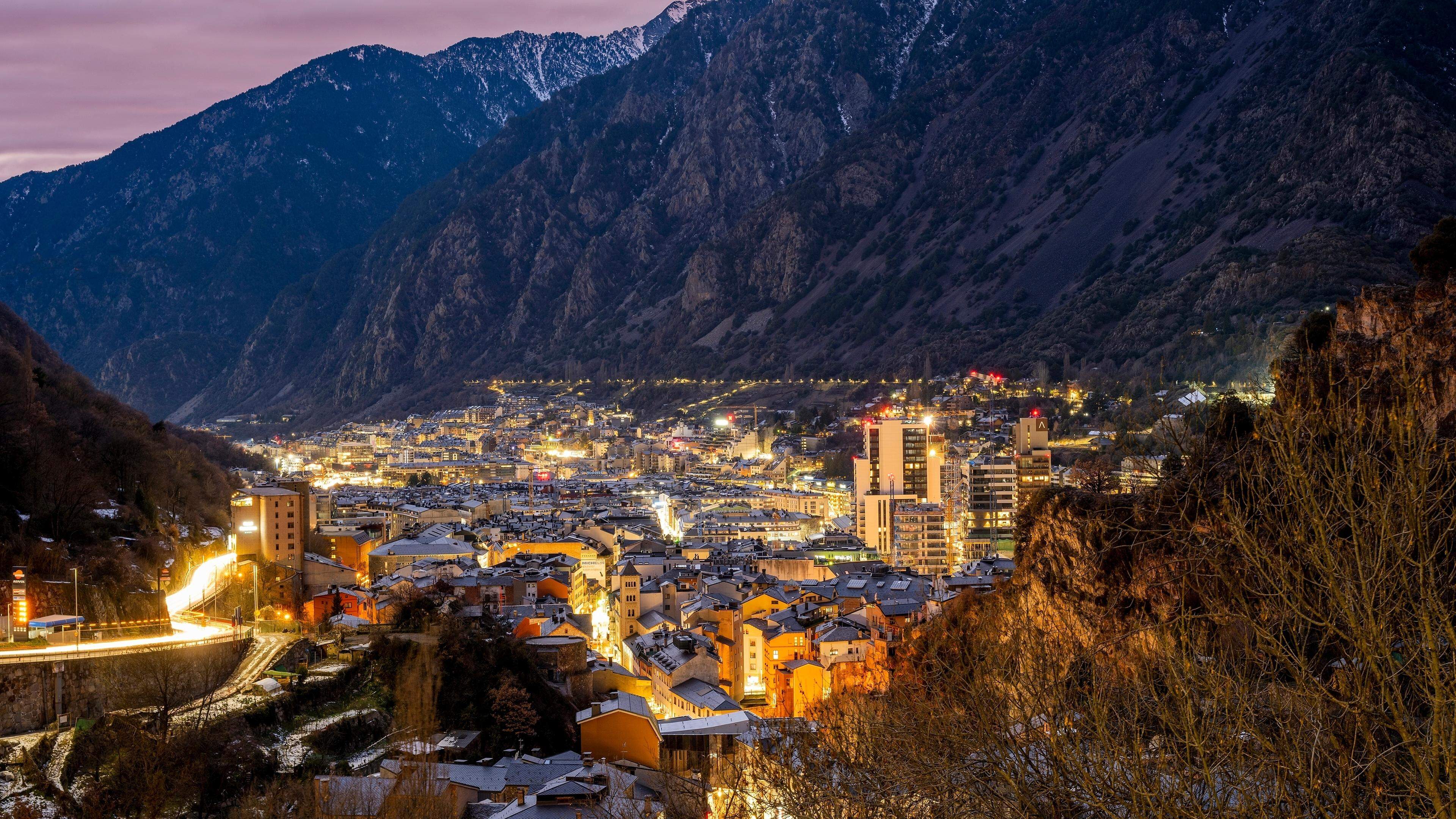‘Too few agents, too little in The Hague’s direction and more and more crime’: in the Caribbean Netherlands, the law enforcement is ‘tragic’
:format(webp)/s3/static.nrc.nl/images/gn4/stripped/data120593855-12eb08.jpg)
Due to understaffing with the police, increasing crime and inadequate control from The Hague, law enforcement in the Caribbean Netherlands is very vulnerable. That states the Law Enforcement Councilwho has been inspecting the criminal justice chain on the islands since 2010. Last Monday the council published two critical report About Bonaire, Saba, Sint-Eustatius and Sint Maarten.
The situation is especially worrying on Bonaire. The police are struggling with a staff shortage: she needs 45 FTEs, while the current occupation is 17 FTEs – a deficit of more than 60 percent. That is too little to guarantee basic police care, according to the council. Due to the high workload, more mistakes are also made and more staff is dropped.
A 24-hour service of ten agents requires thirty men. You cannot resolve suddenly shortages that have arisen suddenly
In response to the parliamentary questions of Faith Bruyning (NSC) of 20 May, State Secretary Teun Struycken (Legal Protection, NSC) said last Tuesday that the understaffing on Bonaire was caused by « unexpected outflow of staff » and that the deficiency led to « reduced capacity in the investigation ».
A few employees of the Marechaussee have been temporarily transferred to the police. And in February ten agents from the European Netherlands came to Bonaire. According to Struycken, a group of twenty prospective agents will also start in September. At the same time, the State Secretary acknowledges that it « continues to sail sharp » and that « preserving the old guard is crucial – also to guide new agents. »
The Bonaire Executive Council stated on Thursday in one letter To Minister Van Weel (Justice, VVD) that, unlike Struycken claimed, the emergency aid of the police (911, which is 112 in the Netherlands) is not easily accessible, or reacts very slowly. « It also happens that, for example, victims of sexual and domestic violence only get help the next day. » According to the college, the problems also occur at the Marechaussee, which means that the boundary supervision ‘is seriously short’. The situation is « untenable. »
Read also
Restly Sint Maarten craves political stability: « People think: does this system still work? »
Wage
On Bonaire, agents mainly drop out because of the low salary. The Council states that their wages are considerably lower than ‘similar positions in the region, but also with regard to the National Police’ in the European Netherlands. This « hinders the continuity of the corps. Because staff are increasingly leaving for other employers where it can earn more without overtime and night shifts ».
According to a director on Bonaire, who wants to remain anonymous, agents are paid ‘structurally substandard’. « While they have to tackle difficult situations every day. »
The director also states that the recent reinforcement by agents from the European Netherlands leads to skewed relationships. « Agents from the Netherlands are already earning better and are assigned an allowance and a home here. That is not motivating for local agents. Dutch agents also have less bond with our community. »
Crowded
Safety on Bonaire is also under pressure due to growing crime. According to the council, the prison on Bonaire is overcrowded. 40 percent of prisoners consists of illegal Venezuelans who were convicted of drug smuggling. Allegedly this group causes « increasing unrest under the prison population, » which is difficult to remedy because of « the personnel understaffing. »
On Bonaire there is a fear of states such as in the Pointe Blanche prison On Sint Maarten, where Marines had to crush a rebellion at the beginning of May. The incident occurred while Prime Minister shoved the island.
Pointe Blanche is notorious because of the poor conditions for prisoners and the staff shortage. At the beginning of March, the prison guards stopped a day, so that prisoners did not get food for 24 hours and were not ventilated.
A new prison is being built on Sint Maarten, but it is only ready in 2028.
Use of arms
In a second report This week appeared, warns the Law Enforcement Council for the increasing juvenile crime on Sint Maarten. More and more often young people commit armed robberies or act in drugs. The report mentions structural poverty, neglect and domestic violence as the causes for the increase. This problem is also growing on the French side of Sint Maarten: last year the number of crimes by minors increased by 19 percent.
On Bonaire and the other islands, young people are also more involved in robberies. The decreasing safety damages the economy of the islands, which is highly dependent on foreign tourists.
A new prison is being built on Sint Maarten, but it is only ready in 2028
In its reports, the Council argues for additional resources from The Hague and an « integrated approach », so that the problems in law enforcement can be tackled. « Too often emergency solutions are devised instead of sustainable, long -term strategies that tackle the underlying problems, » the Council says.
In the first years after the reforms of 2010-when Bonaire, Saba and Sint-Eustatius became special municipalities-it was already clear that the police « was tight in her jacket, » says Glenn Thodé, then the Governor of Bonaire. « You need thirty men for the structural running of a 24-hour service of ten agents-because of scheduling, illness, vacation. You cannot solve suddenly shortages. »
Tragic
Thodé believes that the island board on Bonaire can better bring the problems to the attention of the empire. « If drivers go to The Hague, they mainly want to talk about more autonomy. But they must constantly point out the problems with the police for which The Hague is responsible. And they have to do more themselves – for example, on prevention. »
Thodé also believes that an integral vision in The Hague lacks enforcement on the islands. « It is at the bottom of the list. It seems from the Netherlands as if they are few significant numbers, but for Bonaire it is tragic. »
Read also
‘It is as if the islands do not belong to the Netherlands, as if only second -class citizens live here’

:format(webp)/s3/static.nrc.nl/images/gn4/stripped/data111558632-037779.jpg)
/s3/static.nrc.nl/images/gn4/stripped/data132794026-f4c8d7.jpg|https://images.nrc.nl/R5cO3mrY0SzhGZuBo0NEockxL1c=/1920x/filters:no_upscale()/s3/static.nrc.nl/images/gn4/stripped/data132794026-f4c8d7.jpg|https://images.nrc.nl/WZOickli2uaiWrE5LHb8It0TUO4=/5760x/filters:no_upscale()/s3/static.nrc.nl/images/gn4/stripped/data132794026-f4c8d7.jpg)
/s3/static.nrc.nl/images/gn4/stripped/data131554944-9278a6.jpg|https://images.nrc.nl/ktR1DFV5TJSfQogyMXxdmdsR6HU=/1920x/filters:no_upscale()/s3/static.nrc.nl/images/gn4/stripped/data131554944-9278a6.jpg|https://images.nrc.nl/XL_xzz6BjwQeu4xQGG2OnVRyXqs=/5760x/filters:no_upscale()/s3/static.nrc.nl/images/gn4/stripped/data131554944-9278a6.jpg)
:format(webp)/s3/static.nrc.nl/wp-content/uploads/2024/08/12121414/data120125251-3ecf53.jpg)


